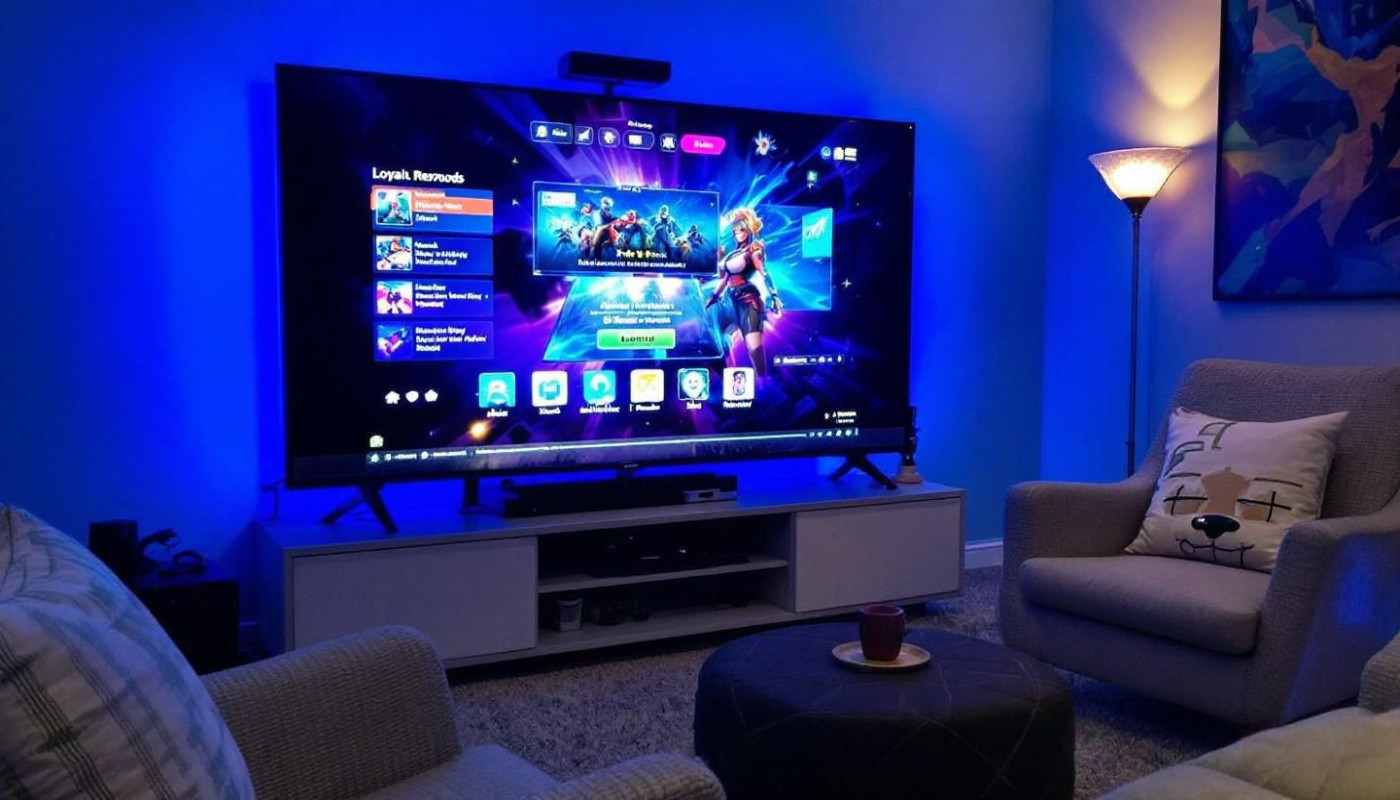Table of contents
In the immersive world of online gaming, player confidence is an essential ingredient in the recipe for success. The bonds formed between players can significantly impact the overall gaming experience, influencing not only individual performance but also the success of entire teams. The process of building trust becomes crucial. However, this trust-building is not always an easy task, especially in an online environment where interactions are virtual. Hence, the need for effective strategies to enhance player confidence and foster trust in online gaming is more important than ever. This article aims to delve into this interesting topic, showcasing practical methods to build trust and boost player confidence in online gaming.
Understanding the Importance of Player Confidence
In the realm of online gaming, player confidence performs a pivotal function. The confidence-performance relationship is a key concept here that underlines the direct correlation between a player's confidence and their performance. This relationship is not merely an abstract concept, but a proven fact endorsed by professional gamers and gaming psychologists alike.
Importantly, a higher level of player confidence boosts the capacity to undertake strategic risks. Gamers with greater confidence are often more willing to explore uncharted territories in the gaming world, attempt innovative strategies, and take calculated risks that can potentially lead to substantial rewards. Without sufficient confidence, a player might hesitate to take necessary risks, thus hindering their overall game progress.
In online gaming, player confidence also significantly affects game enjoyment. Players who are confident in their abilities often find gaming more entertaining and satisfying. On the contrary, players with lower confidence might experience stress and frustration, which can negatively impact their overall gaming experience. Therefore, building player confidence is not only beneficial for performance enhancement but also for improving the overall enjoyment derived from the game.
Identifying Trust-Building Challenges in Online Gaming
In the realm of online gaming, there are a number of inherent trust-building challenges, which can often hamper the experience of the players. One of the key challenges is 'anonymity.' The fact that players operate behind the veil of their online avatars can sometimes lead to a lack of accountability, thus making the establishment of 'virtual trust' difficult.
'Communication barriers' also pose a significant challenge when it comes to trust-building. Online gaming often involves players from different parts of the world, leading to issues such as language barriers and cultural differences, which can hinder effective communication and thereby affect trust-building.
In addition, players' varying 'skill levels' can also factor into trust-building issues. The differing abilities, coupled with the competitive nature of many online games, can lead to a lack of trust among players, particularly in team-based games where cooperation is key to success. This is why gaming community managers or social scientists studying online interactions underscore the importance of overcoming these trust-building challenges in online gaming.
Adopting Effective Communication Strategies
The role of effective communication in online gaming is vital to fostering trust-building and bolstering player confidence. Establishing clear expectations is one foundational strategy. When there is clarity in each player's roles and the goals of the game, it reduces confusion and builds mutual trust. This is a practice that enhances communication dynamics within the gaming environment.
Providing constructive feedback is another powerful communication tool. It not only contributes to player's skill development, but also boosts their confidence. Such feedback encourages players to make necessary adjustments, leading to improved performance and increased trust in the team's collective abilities.
Incorporating open dialogue in gaming communities is also pivotal. It allows players to express their views and resolve misunderstandings, further strengthening the trust-building process. It is through these measures of effective communication that a sustainable gaming environment can be cultivated.
While these strategies can be implemented by any player, guidance from a communication expert or a gaming coach can tremendously enhance their effectiveness. As a point of reference for further insights on this topic, you can look here.
Implementing Team-Building Activities in Gaming
Trust is a fundamental component in the realm of online gaming. One effective approach to fostering trust and elevating player confidence lies in the incorporation of team-building activities. Both on and off the gaming platform, these activities serve as a vital tool in creating harmony and camaraderie among players.
The focus on cooperative tasks in the course of actual gameplay is highly beneficial. By encouraging players to work together towards common objectives, these tasks promote trust-building. They offer players the opportunity to understand each other's strengths and weaknesses better, which in turn, enhances player confidence.
In addition to in-game tasks, off-game social activities also play a significant role. These could involve team meetings, group chats, or even social events. Such interactions allow players to connect on a personal level, further strengthening the bond and trust among team members.
The responsibility for implementing these team-building activities often falls on the shoulders of authoritative figures within the gaming community. These might include team managers or gaming psychologists who understand the nuances of cooperative dynamics. Their expertise enables them to create strategic activities that foster a trusting environment, consequently boosting player confidence.
Thus, team-building activities, both on and off the gaming platform, are instrumental in fostering trust and elevating player confidence. Whether it's through cooperative tasks or social activities, these methods foster a sense of unity and mutual respect among players, essential in any successful gaming team.
Promoting a Healthy Gaming Culture
A healthy gaming culture plays a significant role in enhancing player confidence and building trust within the online gaming environment. The establishment of such a culture promotes sportsmanship, respect, and inclusivity among players. Promoting these values not only fosters a sense of community but also empowers players to engage more confidently and trustingly. The term 'gaming community ethics' refers to this very principle of creating respectful, inclusive, and sportsmanlike behavior within the gaming community. The responsibility of fostering a healthy gaming culture often falls onto community managers or game developers, whose roles are pivotal in shaping the ethics of the gaming community. They are the ones who create and enforce policies that encourage 'player confidence,' 'building trust,' and adherence to 'gaming community ethics.' By doing so, they contribute to a more positive, supportive, and engaging online gaming experience.
Similar articles

How To Master Obstacle Courses In Avian-inspired Games?

Exploring The Impact Of Loyalty Programs On Player Retention

How Game History Can Improve Your Betting Strategy

How Modern Websites Ensure User Authenticity?

How Modern Security Measures Enhance User Safety On Online Gaming Platforms?

Exploring The Evolution Of Pirate-themed Slots In Online Gaming

Exploring The Impact Of Game Themes On Player Engagement And Retention

How To Start Playing The New Social Media Hit Casino Game

How To Safely Play Casino Games Online Without Downloading Apps

Exploring The Features And Credibility Of Top Betting Platforms

How To Set Up Your Online Game For Maximum Enjoyment

Exploring The Consequences Of Engaging In Sports Activities Without Official Authorization

Exploring The Legality Of Binary Options Across Different Regions

The Importance Of Responsible Gambling Practices

Guide To Effective Communication With Customer Support In Online Gaming

Exploring The Impact Of Bonuses On Online Casino Success

Exploring The Benefits Of Advanced Music Search Tools For DJs

Exploring The Impact Of Traditional Japanese Art On Modern Design

Navigating The Unique Features Of Australian Online Casinos

Understanding The Security Features Of Online Betting Mirror Sites

Exploring The Legality And Safety Of Using Offshore Betting Sites

Exploring Mythological Themes In Online Slot Games

Exploring The Link Between Game Design And User Engagement

Strategies To Navigate Through Difficult Levels In Casino Games

